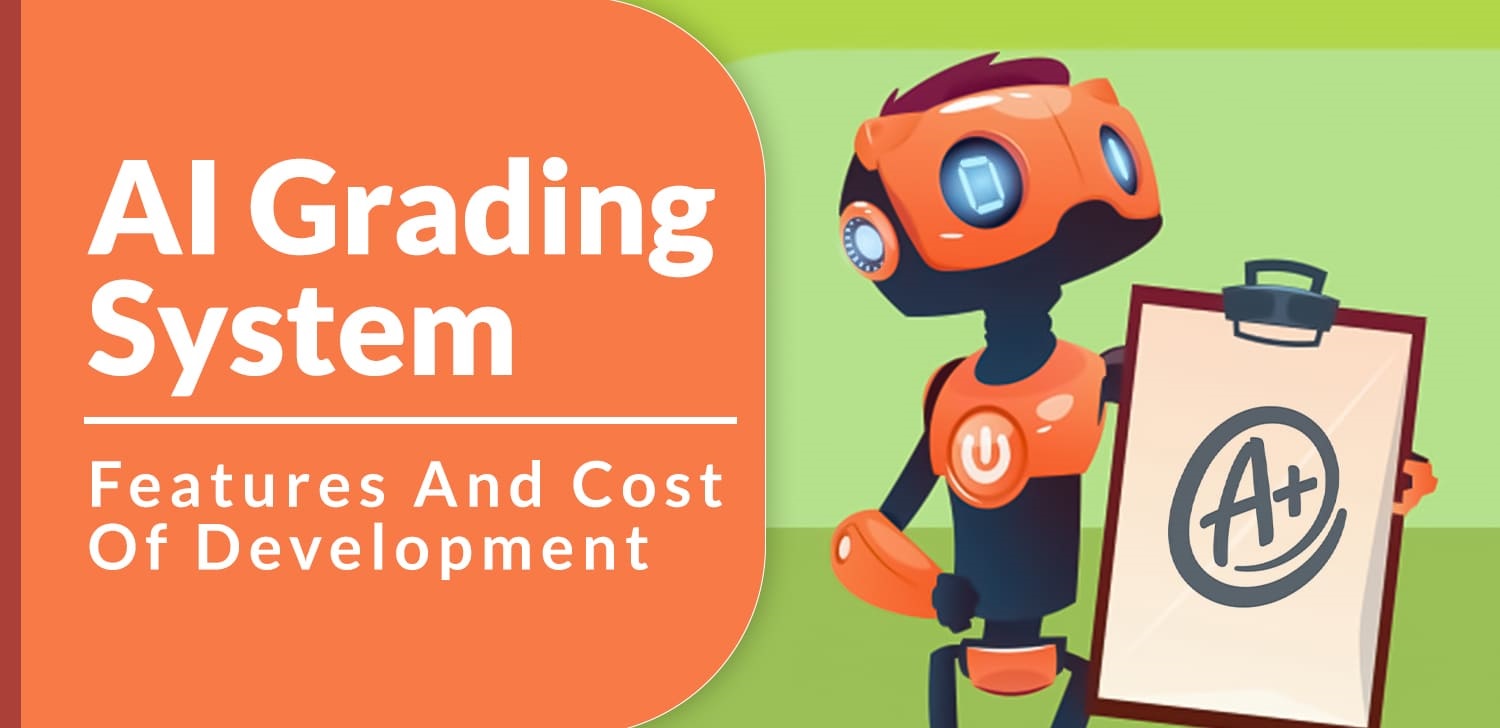Artificial Intelligence in Grading

E- Learning
Introduction :
Artificial Intelligence (AI) has emerged as a transformative force in various industries, and education is no exception. One significant application of AI in the educational landscape is the implementation of automated grading systems. Traditional grading methods often consume a considerable amount of time and resources, creating challenges for educators in providing timely feedback to students. AI in grading not only addresses these issues but also brings about a paradigm shift in how assessments are conducted and evaluated.Automating the Grading Process :
AI in grading involves the utilization of machine learning algorithms to assess and evaluate student assignments, quizzes, and exams. These algorithms are trained on vast datasets, learning to recognize patterns and nuances in student responses. This automation not only accelerates the grading process but also ensures a more consistent and unbiased evaluation, as AI systems are devoid of human subjectivity.Personalized Feedback :
One of the key advantages of AI in grading is its ability to provide personalized feedback to students. These systems can analyze individual strengths and weaknesses, offering targeted suggestions for improvement. This tailored feedback not only enhances the learning experience but also fosters a more individualized approach to education.Efficiency and Resource Optimization :
AI-driven grading systems significantly reduce the burden on educators, allowing them to focus on more strategic aspects of teaching, such as curriculum development and student engagement. The efficiency gains are particularly evident in large-scale educational institutions, where the volume of assessments can be overwhelming. AI not only expedites the grading process but also contributes to resource optimization, freeing up time for more meaningful interactions between educators and students.Challenges and Ethical Considerations :
Despite its numerous benefits, the integration of AI in grading is not without challenges. Questions regarding the ethical implications of automated grading, the potential for algorithmic bias, and concerns about the human touch being lost in education need careful consideration. Striking a balance between technological innovation and preserving the integrity of the educational experience is crucial in the widespread adoption of AI in grading.Conclusion :
In conclusion, the integration of Artificial Intelligence in grading marks a pivotal moment in the evolution of education. As technology continues to advance, the potential for AI to revolutionize assessment processes, provide personalized feedback, and optimize educational resources is immense. However, it is imperative to approach this transformation thoughtfully, addressing ethical considerations and ensuring that the human aspect of education is not overshadowed. Ultimately, AI in grading holds the promise of creating a more efficient, equitable, and personalized learning environment for students and educators alike.Gamification in Learning
Introduction :
Gamification, the integration of game elements into non-game contexts, has emerged as a transformative force in the realm of education. As traditional teaching methods encounter the challenges of keeping students engaged and motivated, gamification offers a dynamic solution that goes beyond conventional approaches. By harnessing the inherent appeal of games—such as competition, rewards, and a sense of achievement—educators can create a learning environment that captivates students and fosters a deeper understanding of the subject matter.Gamification Principles and Engagement :
At the core of gamification in learning lies the application of gaming principles to educational content. Points, badges, leaderboards, and other game elements serve as powerful motivators, turning the learning process into a rewarding and enjoyable experience. The incorporation of narrative-driven scenarios and challenges adds a layer of excitement, making educational content more relatable and memorable.Enhancing Collaboration and Social Learning :
Gamification not only engages individual learners but also promotes collaboration and social interaction. Multiplayer scenarios and team-based challenges encourage students to work together, fostering a sense of community and shared achievement. Through these collaborative experiences, students develop not only subject-specific knowledge but also crucial interpersonal skills essential for success in the modern world.Personalized Learning Journey’s :
One of the significant advantages of gamification is its ability to cater to individual learning styles and paces. Adaptive learning platforms leverage game mechanics to provide personalized challenges based on a student’s progress and performance. This customization ensures that each student receives content at an appropriate difficulty level, maintaining a balance between challenge and achievable goals.Long-term Engagement and Skill Development :
Unlike traditional teaching methods that may lead to short-term interest, gamification sustains engagement over the long term. By incorporating elements of progression and continuous improvement, students are motivated to persist in their learning journey. Furthermore, the skills acquired through gamified learning, such as problem-solving, critical thinking, and decision-making, extend beyond the subject matter, preparing students for real-world challenges.Conclusion :
In conclusion, gamification in learning represents a paradigm shift in education, breathing new life into classrooms and online platforms alike. By leveraging the principles of games, educators can create an environment that not only captures students’ attention but also nurtures a passion for learning. As technology continues to advance, the integration of gamification stands as a testament to the innovative approaches necessary to meet the evolving needs of students in the 21st century. Through this dynamic fusion of education and entertainment, gamification is poised to shape the future of learning, ensuring that students embark on their educational journeys with enthusiasm, curiosity, and a thirst for knowledge.You Might Be Interested In:
Frequently Asked Questions?
01
Tech news
Gatherings Just Got Easier: WhatsApp Communities Now Have Built-In Event Planning
May 5, 2024

01
Mobile Technology
iPhone Repair Just Got Easier: No More Disabling Find My Before Service
May 4, 2024

01
Tech news
Tech for a Greener You: Apps to Empower Your Sustainable Lifestyle
May 3, 2024

01
AI & ML
Meta Llama 3: Jack of All Trades, Master of None (But Still Free!)
May 1, 2024
SUSBSCRIBE TO OUR NEWSLETTER
Join our subscribers list to get the latest news and special offers.
Gatherings Just Got Easier: WhatsApp Communities Now Have Built-In Event Planning
iPhone Repair Just Got Easier: No More Disabling Find My Before Service
Tech for a Greener You: Apps to Empower Your Sustainable Lifestyle
Tesla’s Robotaxi: A Driverless Future on the Autobahn (or Freeway)?